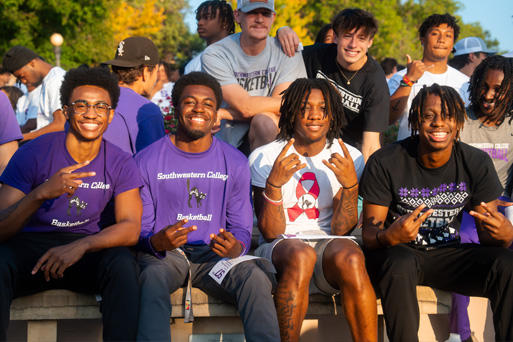Documentation Guidelines
To receive accommodations, students must submit documentation of a disability or limiting condition. Appropriate documentation provides proof of a specific functional limitation and provides a rationale for reasonable accommodations. The most useful documentation demonstrates how a major life function (e.g. hearing, seeing, walking, speaking, thinking, breathing, learning, etc.) is substantially limited and provides a clear sense of the severity, frequency and pervasiveness of the condition(s). If you have a condition that is permanent and non-varying, then documentation that is many years old can be considered current. Conditions that fluctuate or progress or that are temporary may require more recent documentation in order to provide an accurate picture.
Your documentation will include:
- A diagnostic statement identifying the disability. While diagnostic codes from the Diagnostic Statistical Manual of the American Psychiatric Association (DSM) or the International Classification of Functioning, Disability and Health (ICF) of the World Health Organization are helpful in providing this information, a full clinical description will also convey the necessary information.
- Tests and results of the tests used to make the diagnosis.
- A description of the expected progression or stability of the disability. It is helpful to detail the typical progression or prognosis of the condition. Is the condition stable, cyclical or episodic in nature? It is also important to note if symptoms are triggered by environmental conditions.
- Recommendations for accommodations, adaptive devices, assistive services, compensatory strategies, and/or collateral support services. Recommendations from professionals with a history of working with you provide valuable information for review and the planning process. It is most helpful when recommended accommodations and strategies are logically related to functional limitations. Disability Services may or may not approve the same accommodations you have received in other places, but knowing what you have used is very useful.
Documentation should be provided by a licensed or otherwise properly credentialed professional who has undergone appropriate and comprehensive training, has relevant experience, and has no personal relationship with the individual being evaluated. Documentation must be on official letterhead, signed and dated. Typically, documentation is written by the health care professional who evaluated you or who provides you treatment. A good match between the credentials of the individual making the diagnosis and the condition being reported is expected (e.g., an orthopedic limitation might be documented by a physician, but not a licensed psychologist).
Please send whatever documentation you have to the Student Success Center for review. We do accept your IEP or and 504 plan from high school provided that they meet the criteria above. The Disability Services Coordinator will be looking for several pieces of information, but primarily for functional limitations. Sometimes, we can ask the evaluator or treating physician to provide more specific information and that will be sufficient. Depending on the information you provide, we may be able to provide accommodations on a temporary basis while we are waiting for additional information.
Submitting Documentation
Documentation can be sent to the Disability Services Coorinator:
Main Campus Professional Studies PHONE PHONE 620-229-6307 316-285-0605 FAX FAX 620-229-6363 620-229-6363 disability.services@sckans.edu disability.services@sckans.edu Southwestern College Southwestern College Disability Services/Student Success Disability Services/Faculty Affairs 100 College Street 2800 S. Rock Rd Winfield, KS 67156 Wichita, KS 67210
It can also be mailed or dropped off in-person at the address above. The student’s name, student ID number, and contact info should also be included with the documentation.
If you do not have proper documentation you may contact our office via email and we can discuss alternatives.


